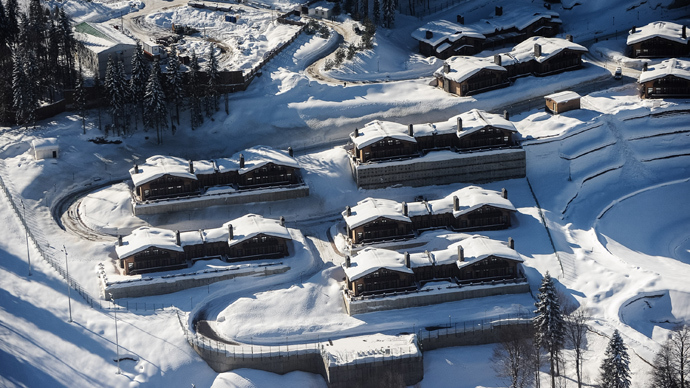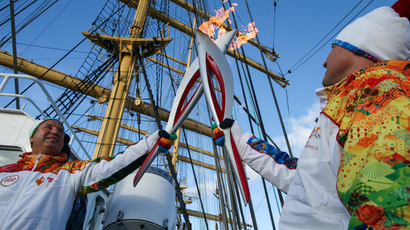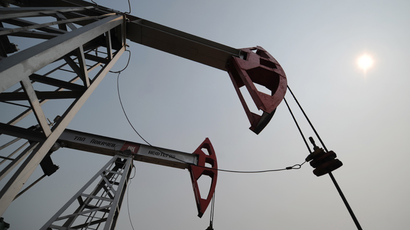Electrifying the Olympics: $310 million thermal power plant opens near Sochi

A new power plant projected to supply more than 25 percent of the energy needed during the 2014 Olympic Games in Sochi has opened. The Dzhubginsky power station has a combined capacity of 180 megawatts, which should solve recent blackout problems.
The station, located 120 miles northwest of the Adler Olympic
Village, has two 90 megawatt generators, and will run on two
steam turbine units, one of the least polluting types of
electricity generators, state-run power utility Inter RAO, who
oversaw the project, said in a press release Tuesday on their website.
Expected to generate about 1.5 million megawatt hours of
electricity per year, the Dzhubginskaya plant will not only keep
the Olympics on the grid, but will provide power to 5 million
people who live in the southern Krasnodar Krai region, the most
popular Russian resort destination.
“The plant has colossal importance for modernizing the
region’s energy sector,” the energy utility’s press release
said.
The Dzhubginsky power station was originally due to open last
week, but the ceremony was delayed until Tuesday. The project was
approved in 2009 by the Russian government as part of a larger
scheme of Olympic venue construction and development and was
managed by Inter RAO and completed on time in two and a half
years, costing $310 million.
The opening comes a day after foreign athletes and coaches
complained of blackouts at their training facilities.
American lugers were in the middle of training on Monday when the
power went out at the Sanki Olympic Sliding Center, the venue for
bobsleigh and luge events in the Krasnaya Polyana Mountains.
Canadian athletes staying in the mountain cluster also complained of blackouts at their hotel, and also said there was no running water.
The coastal cluster, on the Black Sea will host ice hockey,
curling, figure skating, speed skating, and sliding events like
bobsleigh and luge, and maybe most energy-consuming, the opening
and closing ceremonies.
With less than 100 days to go before the opening ceremony on
February 7, the Olympic committee is hurrying to put the final
touches to the logistics.
"Sochi and the whole region have completed a very big,
successful development journey and we have been deeply impressed
with this path," Thomas Bach, President of the International
Olympic Committee, said.
Russia’s Olympics are the will be the most expensive Winter
Games, with a price tag close to $50 billion.














